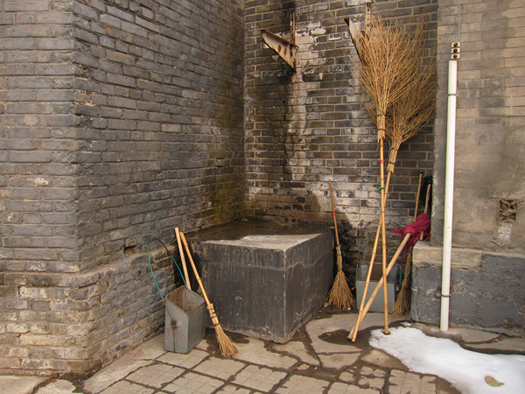
I’ve always been fascinated by common, everyday objects. Such fascination is often fueled by the ordinariness of such objects — mops and brooms and chairs, for instance — in which the simplicity of their form and their basic, utilitarian nature exude a kind of raw, ethereal beauty.
While exploring the streets of China, I would find many mops and brooms lying about in random public places. Such tools are usually regarded as unsightly and we keep them stored or hidden away in our homes: but not in China. Mops and brooms here also look very different from the ones I’ve seen elsewhere: here, they tend to be beaten-up, weathered and hand-made, as opposed to the high-tech, ergonomically designed machines common in the West.
Upon discovering one, I would stop and snap a photograph, as if it were a century-old relic. Collectively, these images paint a picture of the way Chinese people live and amplify, to some degree, the dichotomy between public and private space. Considering them within the broader historical context of this country reframes the relationship between Chinese people and their streets and is, for that matter, a testament to their communal living habits.
All photographs © Joanne Chew



Comments [6]
05.26.11
09:23
05.26.11
10:59
05.27.11
02:57
05.29.11
02:10
06.05.11
11:27
06.10.11
02:59